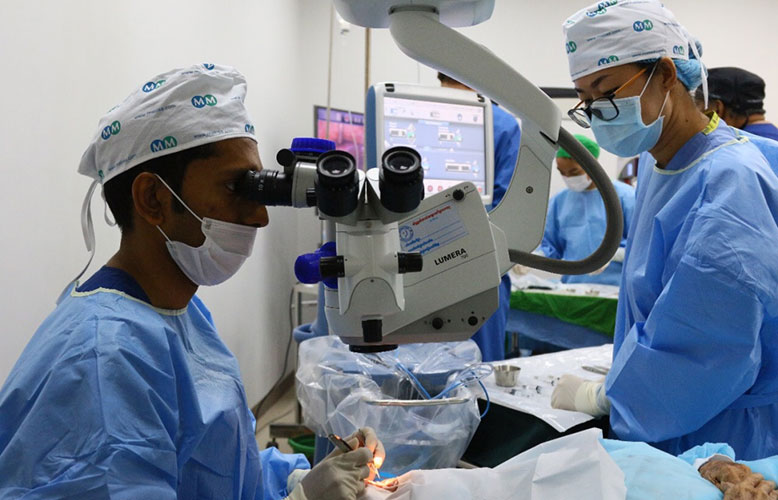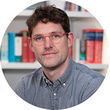- OT
- Life in practice
- Practitioner stories
- Cambodian mission
Cambodian mission
Dr Priyanka Mandal reflects on her time working on a medical outreach project in Cambodia – a country of 15 million people and only 32 ophthalmologists

19 September 2017
Having completed my junior doctor foundation years, I decided to look for ophthalmic exposure, prior to commencing ophthalmology postgraduate training.
My professor in Birmingham at the time had emailed local deaneries in England requesting the aid of optometrists and doctors for an ophthalmic charity mission. Through this process, I was introduced to the Khmer Sight Foundation (KSF).
Self-sustaining future
KSF was founded in 2015 by Sean Ngu, the Cambodian Secretary of State, and Dr Kim Frumar, an Australian ophthalmologist.
Cambodia is a country of 15 million people and due to various factors, most notably the Pol Pot regime of the 1970s, the country has only 32 ophthalmologists. This is one of the lowest numbers of ophthalmologists per capita in the world. The result? There are 170,000 Cambodians who are blind from either reversible or preventable causes.
KSF takes a two-pronged approach to tackling the blindness epidemic. Firstly, it will run weekly missions with the aid of 120 international surgeons recruited from the UK, France, Germany and Singapore to carry out charitable operations on those in need. Secondly, it aims to educate and train local Cambodian optometrists and ophthalmologists to create a self-sustaining future for the country.
KSF is currently working with the Cambodian government to build a state of the art ophthalmic facility in the capital city, Phnom Penh. When complete, this will be the centre for a school of optometry and ophthalmology postgraduate training as well as the venue for future KSF missions.
"In total over 400 patients were seen in clinic and over 200 operated upon"
Hands-on experience
I volunteered with KSF for its first mission in April 2017. We were a team of 11: the group comprised optometrists, senior ophthalmologists, consultants and fellows from the mission from the Manchester Royal Eye Infirmary, plus we were joined by another junior doctor and an anesthetist from the UK.
KSF employs the help of local medical volunteers who travel to rural provinces and undertake population screening. Patients earning below $100(US) per month who have treatable or serious eye conditions are then transported to a central hospital facility in Phnom Penh, for review by the KSF team.
As a junior doctor, my role primarily consisted of seeing patients in clinic. Optometrists here worked alongside ophthalmologists in assessing patients' eye conditions and their suitability for theatre. The optometrists undertook an assessment, just as they would in a general ophthalmic clinic. Patients with glaucoma, refractive issues, corneal disease, cataract and pterygium were encountered and managed appropriately.
The optometrists gave patients with non-surgical issues counselling on their diagnosis, recommended topical medications where appropriate and referral for refraction if significant refractive error was suspected. Little refracting was undertaken during this mission; however, on one occasion, HRH Princess Norodom Buppha Devi of Cambodia did attend our clinic and was refracted by our senior optometrist. If any uncertainty was encountered, the presence of senior ophthalmologists or consultants ensured that advice was readily available. We had the facility to treat two conditions surgically – pterygium and cataract.

An unforgettable week
Days were intense and long, with short breaks for lunch in the hospital grounds. Local medical student volunteers were present and acted as interpreters, scrub nurses and theatre assistants. The hospital itself was air conditioned and modern. It offered all the ophthalmic equipment required – slit lamps, biometry, ultrasound, clean operating theatres and access to blood tests and X-rays.
Through donations we supplied our own equipment, including phacoemulsification machines, 2500 intraocular lenses and all disposables. Patients from the provinces stayed overnight in the hospital to receive a day one post-operative check in clinic. A further four to six-week check was then scheduled to take place remotely in their provinces.
In total over 400 patients were seen in clinic and over 200 operated upon. There were a wide range of presentations and advanced disease stages. Though intense, the week was unforgettable. I had never experienced such levels of patient gratitude before. The senior optometrist on the mission told me that they found the experience exciting and fruitful, and were impressed by the variety of conditions encountered and the large impact made on patient lives. They have already signed on to partake in a mission next year.
KSF offers opportunities for optometrists to volunteer their expertise and help those less fortunate while developing their team-working skills and experience in breadth of ophthalmic conditions encountered. As the missions run for seven-day periods, participation is very accessible. I met some fantastic people along the way and would highly recommend volunteering with this charity.
About the author
Dr Priyanka Mandal is a trainee ophthalmologist based in the West Midlands.
Advertisement


Comments (0)
You must be logged in to join the discussion. Log in